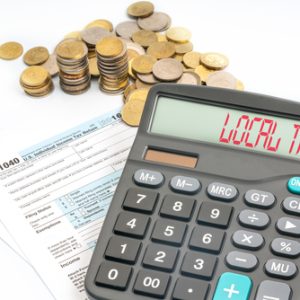Tax Relations of Consumption Tax in the First Year of Establishment of a Japanese Corporation
February 18, 2020
Question:
After establishing a Japanese subsidiary or branch office, what is the tax relationship for consumption tax in the first year?
Answer:
Because there is no base period during the first year following incorporation, it is determined based on whether the capital at the start of the tax period was 10 million or more.
Explanation:
For a Japanese Corporation
There is no base period for the first year of establishment of a Japanese corporation. The term “base period” generally refers to the previous business year. In principle, taxable sales during the base period are examined if it is more than or less than 10 million yen, and whether it is a taxable or tax-exempted company (Consumption Tax Act, Article 9, paragraph 1). If there is no base period, the amount of capital at the start of the establishment’s fiscal year will determine the consumption tax liability. If the amount is 10 million yen or more, it becomes a liable to consumption tax from the first year (Consumption Tax Act, Article 12, paragraph 2, item (i)) onwards.
Conversely, if the capital amount is less than 10 million yen, it will be a tax-exempt company unless it chooses to be liable to consumption tax.
For a Japanese Branch
If you set up a Japanese branch within the first two periods of the foreign corporation, there is no base period, so the obligation to pay the consumption tax will be determined by the amount of capital that the foreign corporation had when it was established. It will be a taxable company if the capital, converted into Japanese yen, is 10 million JPY or more; otherwise, unless it voluntarily choses to pay consumption tax, it is not liable to pay consumption tax.
On the other hand, if many years have passed since the establishment of the foreign corporation, it would mean that there is a base period for the Japanese branch: if there are no taxable sales for that period, it becomes tax-exempted.
(Exemption from tax liability for small enterprises)Article 9 A business operator whose taxable sales during the base period pertaining to the taxable period is 10 million yen or less, notwithstanding the provisions in Article 5, paragraph 1, are exempt from the obligation to pay the consumption tax regarding the transfer of taxable assets, etc. and taxable purchases performed domestically during the said taxable period, provided, however, that this shall not apply in cases where it is otherwise provided by other Acts.
Consumption Tax Act
(Special provisions for tax exemption for newly-incorporated entities )
Article 12-2 Transfer of taxable assets, etc. and specific taxable purchases of that occur within the taxable period that includes the business year with no base period (excluding the taxable period that will not be exempt from the obligation to pay consumption tax as provided for by Article 9, paragraph 4; Article 9, paragraph 4, item (i); Article 11, paragraph 3 and 4; and the preceding paragraphs (1 and 2)) done by entities with no base period for the relevant business year (except social welfare corporations as defined in Article 22 (Definition) of the Social Welfare Act (Act No. 45 of 1951) and corporations established solely for a transfer of assets, etc. exclusively stated in Appendix 1 as specified by Cabinet Order) whose amount of capital or amount of investment at the start of the relevant business year is more than 10 million yen (hereinafter referred to as “newly-incorporated entities”) are not exempted from tax liabilities provided for under Article 9, paragraph 1.
(Hereinafter omitted.)







